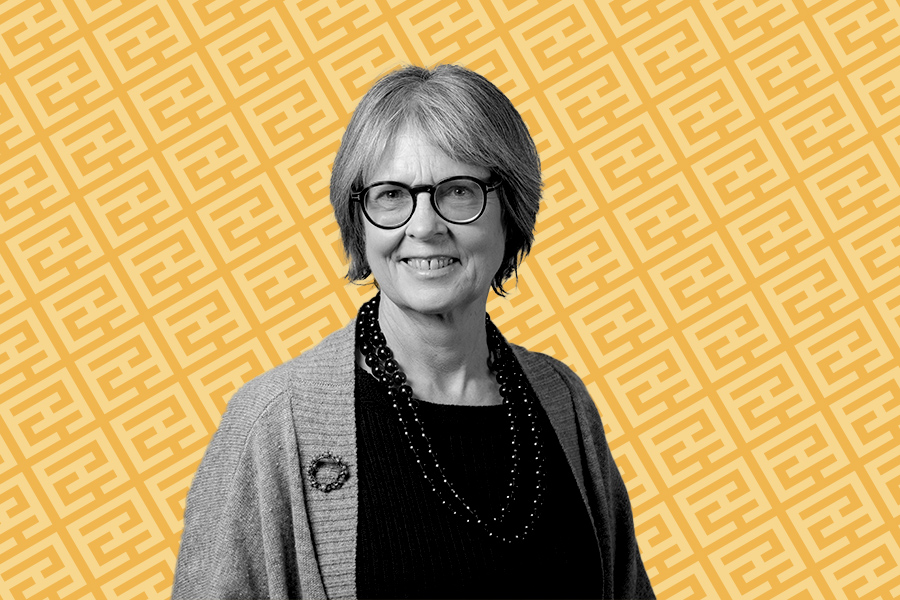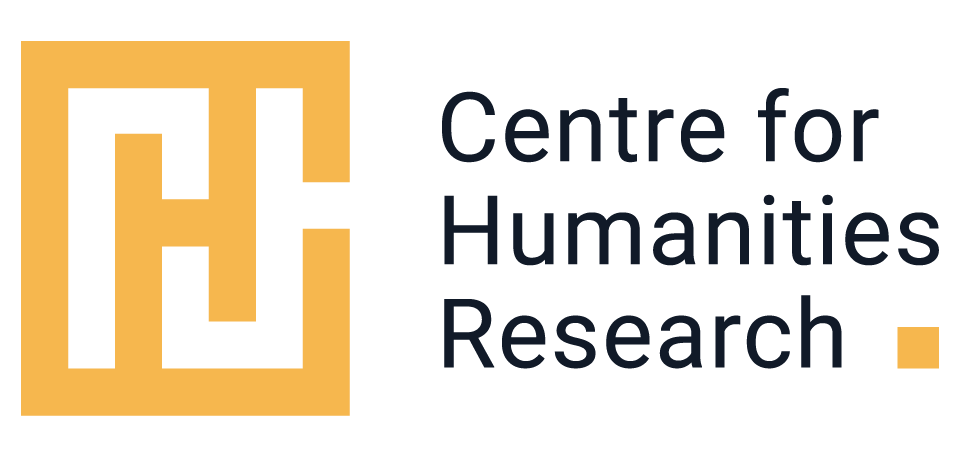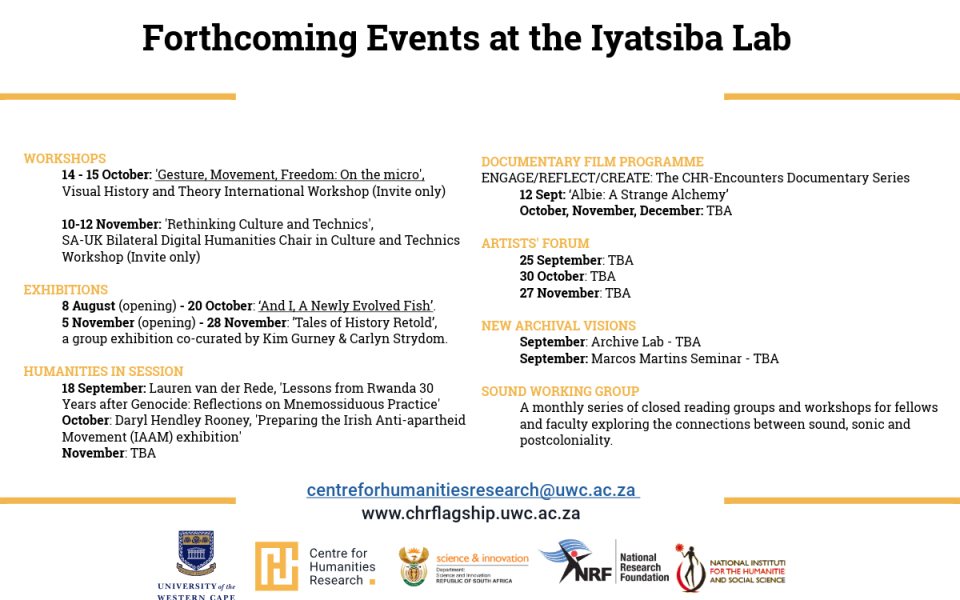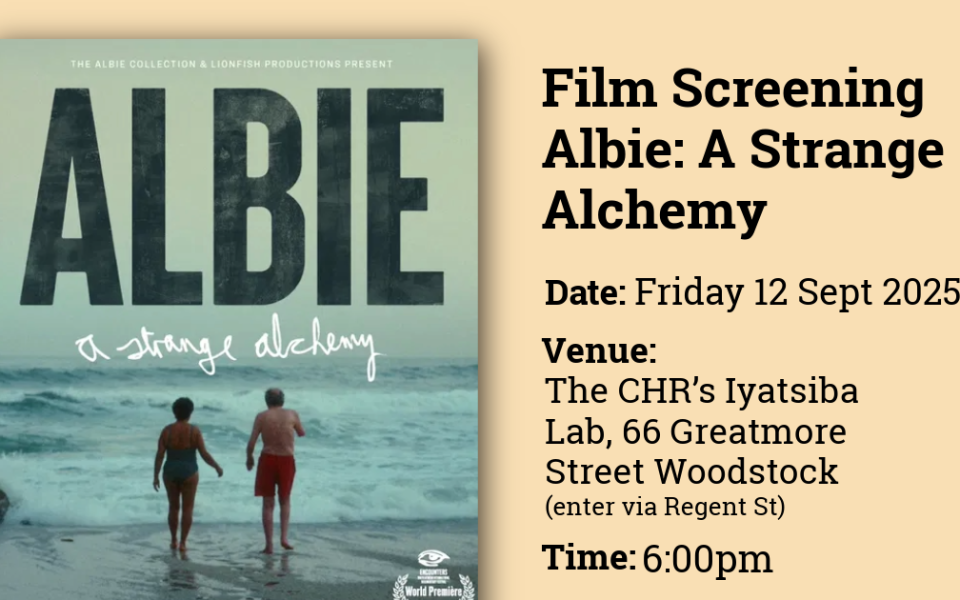Maxeke-Robinson Research Chair: Professor Ruth Barton


The CHR welcomes Ruth Barton as a visiting professor on the Charlotte Maxeke–Mary Robinson Research Chair to present a public lecture and documentary film screening about the legacy of the Irish Troubles on film. This lecture will be followed by an afternoon discussion on Irish cinema and ecocriticism.
The event will take place at the Humanities Hub, Woodstock, on Monday, 23 October from 10:00 to 16:00.
10:00-13:00 Exploring the legacy of the Troubles on film
The ‘Troubles’ in Northern Ireland are usually considered to have lasted from the 1960s to the signing of the Good Friday Agreement of 1998. Since then, the question of how to memorialise the events, and the dead, of these years has remained unresolved. In July 2021, then British Conservative prime minister, Boris Johnson, announced the introduction of the ‘Northern Ireland Troubles (Legacy and Reconciliation) Act’. This was passed into law in September 2023. The act is deeply controversial, most of all for the proposal that it will offer conditional amnesties for perpetrators. The act is opposed by all the main parties in Northern Ireland, the Republic of Ireland, the European Commission and the United Nations. Those opposed to it argue that the law is not compatible with the European Convention on Human Rights.
With no official peace and reconciliation process in place for the post-Troubles period, it has been left to individual groups – including writers and artists – to probe the legacy of the Troubles and to consider this in the light of post-Trauma. In 2019, David Blake-Knox published Face Down: The Disappearance of Thomas Niedermayer, about the kidnapping and murder by the IRA of a German industrialist in 1973. This has now been turned into a documentary, released in Ireland in 2023. In this seminar, we will view the documentary and consider its impact as an intervention in post-Troubles discourse.
13:00-12:00 Lunch
14:00-16:00 Eco-criticism and Irish cinema
The question of how to engage the wider public with the environmental challenges of global heating and climate change through film is challenging. Didactic messages do not sit well within entertainment media forms and overly negative prognoses induce feelings of helplessness and despair rather than galvanizing action. In this seminar, we will look at the wider issues facing local Irish filmmakers in engaging audiences with these issues. We will discuss how the relationship to the land and to community may be framed within representations and how to negotiate the pitfalls of nostalgia and romanticization (of land and community).
We will view the documentary, The Pipe (Risteard O’Domhnaill 2010), about the campaign to prevent Shell from laying a pipeline through a small coastal community’s land in the West of Ireland. Specifically, we will discuss this as an example of an activist documentary and analyse how it deploys images of the rural landscape and community to convey its message.
Bio
Ruth Barton is a professor of Film Studies at Trinity College Dublin. She is the author of several books on Irish cinema and has co-edited a volume of essays on Irish Cinema and Television as well as being the author of many articles on Irish and British cinema. Her interests include Irish cinema, stardom and diaspora studies. She is editor of a collection of essays on Irish-American film and television and on the Irish in Britain. She has also written a critical biography of the film star, Hedy Lamarr, and of the Irish silent director, Rex Ingram. She appears regularly on radio as a film historian and film critic.
The Charlotte Maxeke – Mary Robinson Research Chair emerges out of a longstanding collaboration between the Centre for Humanities Research (CHR) at UWC and the Trinity Long Room Hub Arts & Humanities Research Institute (TLRH) at Trinity College Dublin that has focused on colonialism, partition, postcoloniality and race. The Charlotte Maxeke-Mary Robinson Research Chair inaugurates, through the Humanities, a broader and reciprocal collaboration between Ireland and South Africa which engages our complex inheritance of colonialism, empire, partition and apartheid, and how to overcome this legacy. The CHR and TLRH’s work in aesthetics and politics has drawn attention across our social and institutional settings to the ways that cultural production can bring political thought, the arts, and research across disciplines into the public sphere. This shared understanding stems from a recognition of a history that marks both countries in relation to legacies of colonialism and partition, as well as to the possibilities inherent in the work of education and the arts to find unexplored modes of reconciliation to transcend these legacies.





